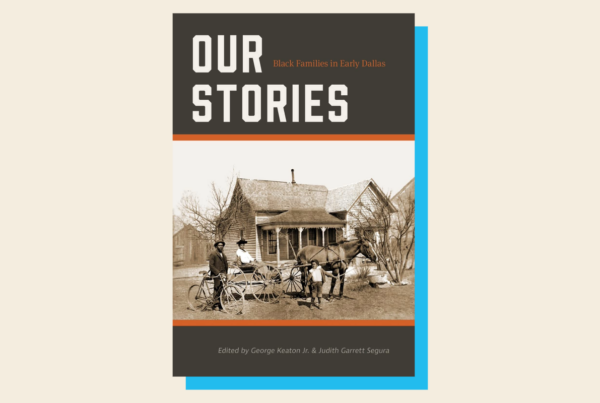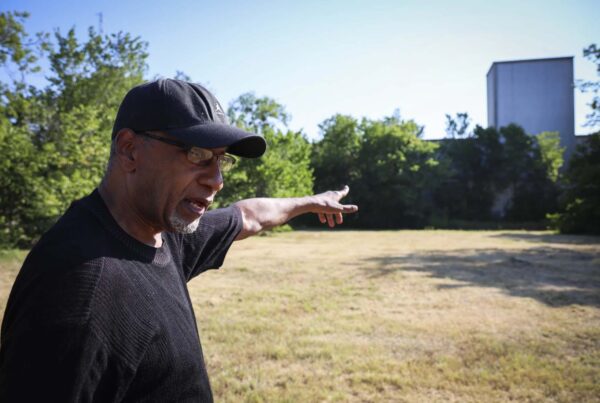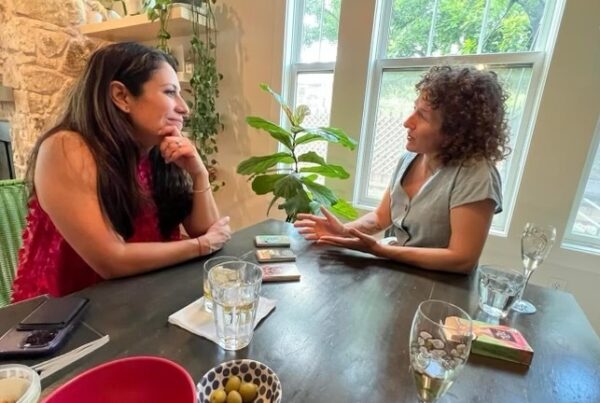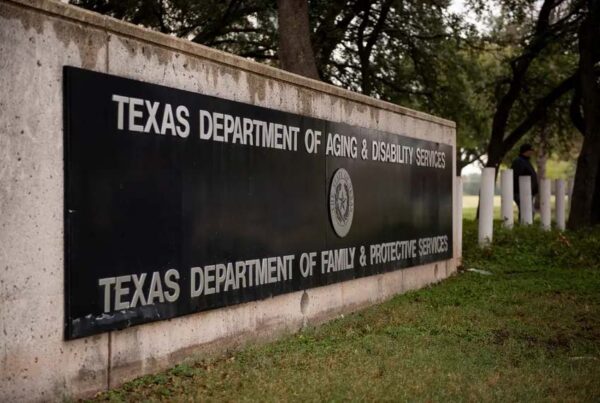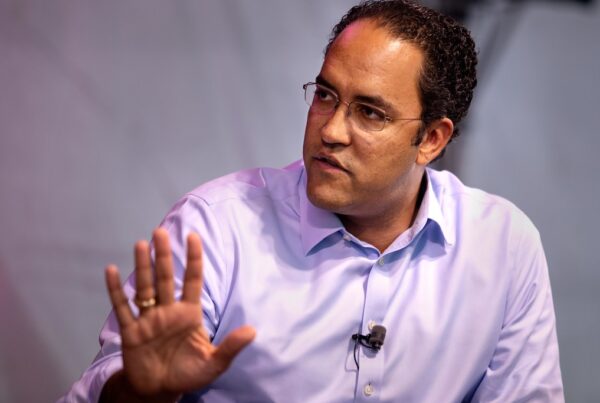Texas Standard: 33 minutes past the hour, Texas Standard time. I’m David Brown.
Some deaf children in the custody of Texas’ foster care system have been placed out of state so they can get the care and communication services they need. But many other deaf or hard-of-hearing foster youth live in homes where they’re unable to communicate with caregivers. These are among the findings in a Texas Tribune story by our guest, Neelam Bohra. She covers issues affecting people with disabilities for the Tribune. Neelam, welcome to The Texas Standard.
Neelam Bohra: Hi. Thank you.
Texas Standard: We’ve reported on the Texas foster care system’s failures and challenges over the past decade. There have been reports about abuse, neglect of children, children sleeping in state offices. Your story focuses on kids in the system with hearing disabilities. What special difficulties do these young people face?
Neelam Bohra: Right. So being deaf and hard of hearing is not just a language barrier for a lot of these kids. It’s pretty vital to their development to be able to communicate through American Sign Language or with other deaf adults who understand what it means to be deaf. And for these kids, communicating with caregivers or even caseworkers who work at the Department of Family and Protective Services is really important for them to understand what’s happening around them.
If they’re being removed from a neglected or abusive home, if they are being moved around between other foster homes, they need to understand what’s going on, and often they don’t because ASL interpreters are very hard to come by in the state, mainly because they’re contracted out to local agencies who provide them, and some of them might not be as qualified to translate what these children are saying.
Texas Standard: Is it clear how many deaf and hard-of-hearing kids are in foster care in Texas?
Neelam Bohra: Yeah, it is not quite clear. Right now the state says that there are 86 deaf or hard-of-hearing kids and only four primarily use American Sign Language. But this number is considered by many advocates to be an undercount.
There are a lot of issues with the way that Texas tracks kids in foster care generally. And one of the issues is the software they use, IMPACT, which was built in the 1990s and hasn’t been updated much since. So a lot of things are still done manually or not through the technology.
And on top of that, they don’t actually work with medical providers for these kids to make that assessment, whether they’re deaf or hard of hearing. They get that information from maybe the kid’s school that they go to or the kid’s biological parents. They are not in contact with the medical providers about this information.
Texas Standard: So a big part of it, it sounds like, is just managing the cases and knowing what needs there are for the individual foster kids. I mentioned that some Texas foster kids have been placed out of state because they can’t get the services they need here. How is that happening, and where do they actually end up?
Neelam Bohra: Yeah, so to be fair, there are a limited number of behavioral health facilities or places where kids can stay when they need a higher level of care that are accessible to deaf kids. But Texas does have a pretty large population of deaf kids. It has one of the biggest schools for the deaf, the Texas School for the Deaf based out of Austin.
And unfortunately, some of these kids are still having to be sent out of state to places like Arkansas or even Boston, Massachusetts, where there are some of these more accessible facilities that have interpreters on site that are meant to serve deaf children with, you know, mental health needs, behavioral health needs, things like that. And Texas just doesn’t have the infrastructure for that.
Texas Standard: What are foster parents and advocates and and others – I think there’s an advisory committee in the governor’s office – what are these different constituencies saying that these kids need that they’re not getting right now?
Neelam Bohra: I think the main thing that a lot of foster parents are advocating for is someone who understands them and can advocate for them in the foster care system. And so, yeah, the governor’s Committee for People with Disabilities actually provided a recommendation that Child Protective Services have one designated person who is fluent in American Sign Language, who understands deaf culture and can help connect with deaf foster kids and help find them foster homes with other deaf adults or people who are fluent in ASL.
And you know, DSPS just said no, they didn’t want to create a another full-time employee position and they weren’t sure it was worth it since it was such a small population, according to their report.
Texas Standard: Is it your sense that there is that attention is being paid at the state level by the right folks to try to deal with this issue or that this is a kind of a second, third or lower priority?
Neelam Bohra: I think that there are a couple people on that Governor’s Committee in the governor’s office who are very passionate about this issue and are trying to make things happen. But otherwise, I definitely get the sense that it’s not considered a high-priority issue because it is a smaller population and because, you know, the foster system already has so many issues that it’s contending with. I assume that, you know, they put this one kind of lower down.
Texas Standard: Neelam Bohra is a disability reporting fellow for the Texas Tribune. We’re going to have a link to her very interesting story and a transcript of this conversation as well at Texas Standard.org. Neelam, thanks so much for joining us.
Neelam Bohra: Thank you.




